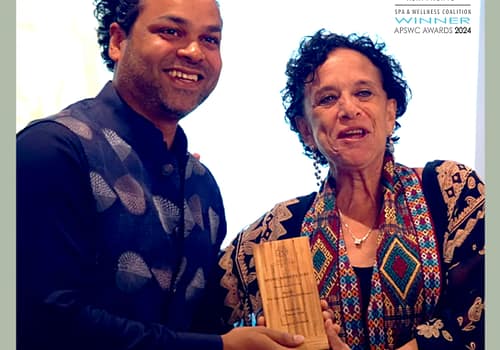Vedanta is the best-known
philosophical school of India, to the point where its name is virtually
synonymous with Indian Philosophy worldwide. Unlike its fellow Vedic schools of
thought, Vedanta goes deeply into Vedic wisdom to come up with theological
interpretations of God, instead of developing its own metaphysical systems. Of
the orthodox traditions emanating from the Vedas, Vedanta may be considered the
school of scriptural exegesis (the philosophical interpretation of texts). This
closeness to the original scriptural inspiration is surely the reason for its
unending popularity throughout world culture and history.
Schools of
?Inquiry? in Indian Philosophy.
Within the set of six
orthodox philosophies in the Vedic tradition, Vedanta philosophy is commonly paired
with the Mimamsa school. Both are concerned with inquiry (Mimamsa) into the Vedas, and are similarly text-based. Indeed,
Vedanta also goes by the name of UttaraMimamsa,
or the ?later enquiry? – a reference to the parts of the Vedas that guide its
interpretive process. Unlike the Mimamsa school, which concentrates on the
strict performance of ritual as prescribed in the earlier parts; Vedanta
confines itself to the later, more contemplative parts of the Vedas ? chiefly,
the Upanishads.
The Three Sources
of Vedanta Philosophy.
All traditions of
Vedanta base their philosophical and theological interpretations on three texts
? texts believed to contain the very essence of the Vedas. The first and foremost
of these is the Upanishads – a
compilation of the highest insights of the Vedas, and considered to have the
status of revealed knowledge. The second text of the Vedanta canon is the Brahma Sutra – an incredibly concise and
complex commentary on Upanishadic wisdom and considered to be a work of logic.
The final text of the set is the Bhagavad
Gita – contained within the epic Mahabharata
and emanating from the oral tradition as ?remembered? knowledge.The schools of
Vedanta place differing emphases on these texts, with some of the more bhakti-oriented schools greatly
prioritizing the insights of the Bhagavad
Gita to support their creed.
The Schools of
Vedanta.
The most famous school
of Vedanta is undoubtedly that of AdiShankara?s Advaita Vedanta? based on an interpretation of the Upanishads that identifies soul (Atman) entirely with God (Brahman). This is also the school to
have been most successfully transported abroad, and because of this, many have the
misconception that Vedanta itself refers to non-dualism. However, this is not
the case: Vedanta consists of up to ten schools each differing in their view on
dualism. There can be no simpler way to phrase these differences than with
Swami Sivananda?s words on the three main branches:
Madhva
said: “Man is the servant of God,” and established his Dvaitaphilosophy.
Ramanuja said: “Man is a ray or spark of God,” and established his
Visishtadvaita philosophy. Sankara said: “Man is identical with Brahman or
the Eternal Soul,” and established his KevalaAdvaita philosophy.
The three Vedanta schools mentioned are
Dualism, Qualified Non-Dualism and Non-Dualism, respectively. These represent
the earliest three schools of interpretation, and later spawned several others.
With the exception of Advaita Vedanta,
all other schools can be located within the tradition of Vaishnavism (Vishnu
worship) in India.
Kairali Yoga offers world-class tuition in
Indian Philosophy at their Yoga and Ayurveda retreat center in Kerala, India.
To learn more about their tailor-made retreat programs, click here

















































Leave a Reply